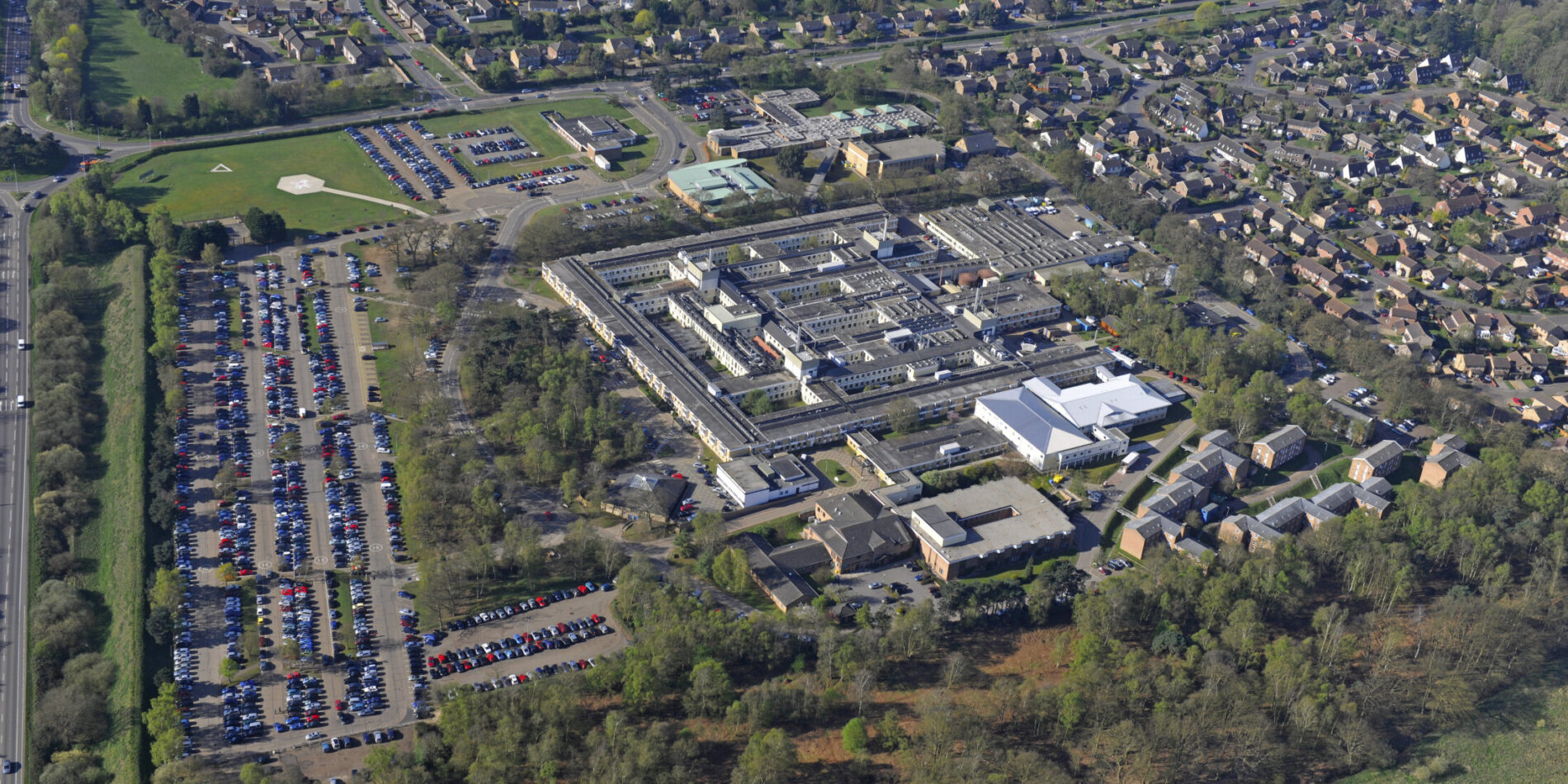Summary
Framework/Partnership // Strategic Partnership
Project Type // Refurbishment
Date Completed // Ongoing – May 2022
Background
Approximately 79% of the QEHKL estate was constructed using Reinforced Autoclaved Aerated Concrete (“RAAC”) planking, which have been noted by experts to be nearing their useful lifespan, which presents a significant health and safety risk to patients and staff.
Implementing a failsafe solution across the Trust is therefore imperative to help mitigate this risk in the short to medium term, whilst a longer-term solution is developed.
A wider £20.6m RAAC Year 1 programme of works was developed to create necessary, decant opportunity for a progressive implementation of Failsafe works across the estate, reduce RAAC risk and improve patient safety.
Since full business case approval was awarded, a condition and key driver of this funding is that the full amount of capital needs to be expended in the 2021/22 financial year. NHSEI colleagues have made it explicitly clear that the Trust must deliver the works identified and expend these funds as swiftly as possible, no later than 31/03/22.
The decant space being created is for two wards (by relocating services and repurposing existing wards) and a review of theatre activity to create two decant theatres. These decant spaces will allow for the fitting of the failsafe system across further wards and theatres in subsequent phases.
This appointment focused on the decant and refurbishment of two existing clinical areas to implement the failsafe solution; these two areas are noted as West Dereham and Brancaster Wards.

The Scheme
The Year 1 Programme activities focused on the minimisation of the risk associated with RAAC planks. The main activities for year one included the creation of much needed decant space. The decant space being created is for two wards (by relocating services and repurposing existing wards)
Refurbishment of 2 existing wards (West Dereham & Brancaster) to include RAAC failsafe solution and refurbish into clinical use to provide decant opportunity for future failsafe programme
- West Dereham ward – Convert to a dementia friendly care of the elderly ward, co-located in the west wing with the stroke unit and other care of the elderly ward. Frail, older people are a significant proportion of the Trust demographic, this ward will better meet their needs and bring the care of the elderly team together in one area of the hospital, close to the discharge lounge and their outpatient area. This area of the hospital also has a separate entrance with ambulance drop off / pick up point. The vacated ward (Windsor) becomes the next decant ward for refurbishment in Year 2
- Brancaster Ward – is then freed up following decant to an new outpatients unit/ Failsafe to become decant space for Post-natal service. The current post-natal ward (Castleacre) has more beds than we need for post-natal care, Brancaster can be right sized for post-natal needs. Opportunity for Castleacre to move to Brancaster, and Castleacre becomes opportunity for future decant space for next phase
Following a carefully managed sequence of prior enabling schemes and decant activities, Vacant Possession of the West Dereham and Brancaster Wards was given in January 2022. The works are anticipated to be completed in March 2022 (12week contract)
Service
exi Project Management partnered with QEHKL in Spring 2021 to deliver the RAAC Emergency Funding Business case (Year 1).
In addition to the Programme Management role for the year 1 activities, exi were appointed as a multi-disciplinary design team to deliver Project Management, Architectural, Building Services, Civils and Structural and Cost management services to develop the Operational brief and outline for precontract design through to RIBA Stage 4b.
To engage this workstream the following activities were undertaken:
- – Clinical engagement sessions, to inform the spatial and operational brief.
- – Develop the outline design for the Ward refurbishment
- – Develop technical solution
- – Develop Failsafe solution with input from national experts
- – Provide tender pack of documents
- – Provide prelims and contract particulars
The design was developed at pace, and procurement activities undertaken to contractor appointment.
A contract has been awarded, and the exi multi-disciplinary team will be retained by the client to monitor the delivery of the works through to completion. exi Project Management and cost management teams will be providing Contract Administration services.

Outcomes
The schemes, although relatively minor in nature, required large amounts of liaison with end-users to obtain the necessary clinical input and detail that allowed exi to develop the design in a short space of time.
The tight timescales involved to deliver these works within the overall programme meant that a framework direct appointment was necessary and QEH were unable to go out to the market for competitive tender, and a negotiated procurement route was used.
All of the tools and techniques demonstrated within this case study can be applied to projects of varying size and type, to ensure challenges are overcome in a holistic and structured manner.
This project saw the successful delivery of high-quality small works projects within tight timescales to enable a broader programme of works aimed at ensuring that the QEHKL site is safe for use, these works form the first phase/year of a three-year phased refurbishment programme, with the Raac Yr. 2&3 programme to be developed and funding to be secured with NHSE/I.

